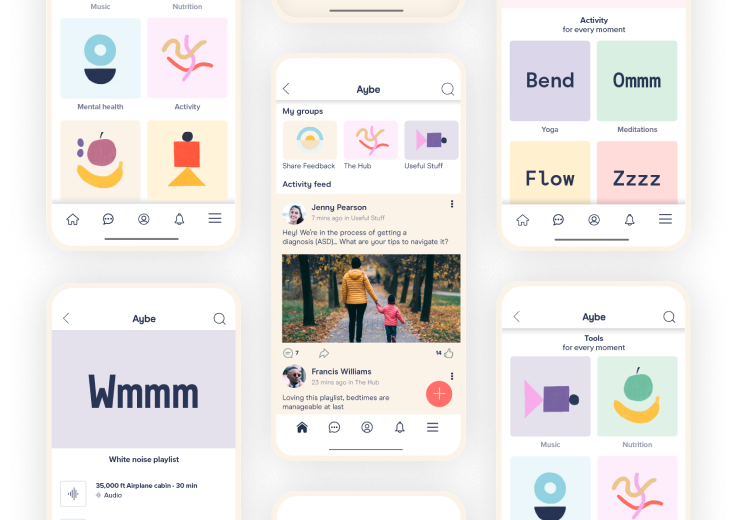What is Tourette Syndrome?

Tourette Syndrome is a neurodivergence where its key features are tics or involuntary sounds or movements, which may include sniffing, head or limb jerking, face movements, clicking or other noises, repeating a sound or words, jumping, touching people or objects, internal movements like muscle tensing, and more.
A pattern of multiple tics should be present for over a year to meet the diagnostic criteria for this syndrome. About 1 in 100 children are estimated to have Tourette Syndrome and it is diagnosed more frequently in boys than girls, at a 3 or 4:1 ratio.
Symptoms tend to appear between 4-6 years of age. Then increase until a peak around the age of 10-12 years of age, and improve until about 21 years of age.
Join the Community
Download the app to access more specialist advice, community support and wellbeing tools.
Join today as a Contributor member to gain free* access!
Download now
*Free access, in return for contributing to Aybe on a weekly basis, for example by commenting, liking, responding to feedback requests. See Terms & Conditions.

Growing Up with Tourettes (Video Credit: Tourettes Action)
In one study, over 80% of patients in a study reporting improvement in their tics as they age. About 10-20% of individuals will still experience frequent or even increased symptoms past that age, however.
Up to 85% of individuals with Tourette Syndrome will have co-occurring conditions, such as ADHD, OCD, depression, learning difficulties, or self-harming behaviour.
Quick Note: Although it’s often one of the first symptoms people will associate with Tourette Syndrome, involuntary swearing and other unexpected social remarks (or ‘coprolalia’), is actually a less common symptom of this syndrome! It occurs in only about 15-20% of people with Tourette Syndrome.
Challenges that can be common with Tourette Syndrome:
- Self-regulation of behaviour can be challenging, sometimes in relation to co-occurring conditions like ADHD or disinhibition or from dealing with stressful situations.
- While tics may be able to be mentally directed or controlled in a particular moment, it can often lead to the tics manifesting in a more significant way after. This means transitioning from a highly structured environment, like school, to a more relaxed environment, like home, can lead to an increase in symptoms.
- Some people may have “tic attacks,” where tics happen more severely, continuously, and for minutes to hours.
- Tics may sometimes be accompanied by pain.
- Co-occurring conditions, along with some symptoms of Tourette Syndrome, can make emotional management challenging.
Strengths that are often found with Tourette Syndrome:
- The differences in frontal/basal-ganglia formation can lead to increased verbal processing speed and working memory.
- Many individuals with Tourette Syndrome appear to have heightened creativity.
- The skills and processes used to direct or control tics in certain situations can lead to a finer-tuned ability to control certain behaviours in the long-term.
An important note: Obtaining a diagnosis can be a huge step in understanding why the world can seem so different. So if anything here sounds familiar, we recommend talking through questions or concerns with your healthcare provider. These are helpful resources to get started with:
For both children and adults with Tourette Syndrome, you can find information on what Tourette Sydrome is, what to expect with diagnosis, symptoms, management, support, resources, and more at Tourettes Action and the Tourette Association of America. This brochure has even more thorough information, for further reading.
There are additional resources on Tourette Syndrome as well a professional training recording available for teachers. Schools and families can use these cards with common symptoms, struggles, strengths, and tips to manage Tourette Syndrome as great resources for kids. Anyone in need of more support can always reach out to this helpdesk from Tourettes Action.
Many Other Forms of Neurodivergence
Other common neurodiverse conditions you may experience are:
Check back in as we create more resources for these neurodivergence in the coming weeks.
Find yourself learning more about these conditions or revising your support plan and need more info? If you are after any specific tools or support, please let us know what you need within our community.
Join the Community
Download the app to access more specialist advice, community support and wellbeing tools.
Join today as a Contributor member to gain free* access!
Download now
*Free access, in return for contributing to Aybe on a weekly basis, for example by commenting, liking, responding to feedback requests. See Terms & Conditions.

